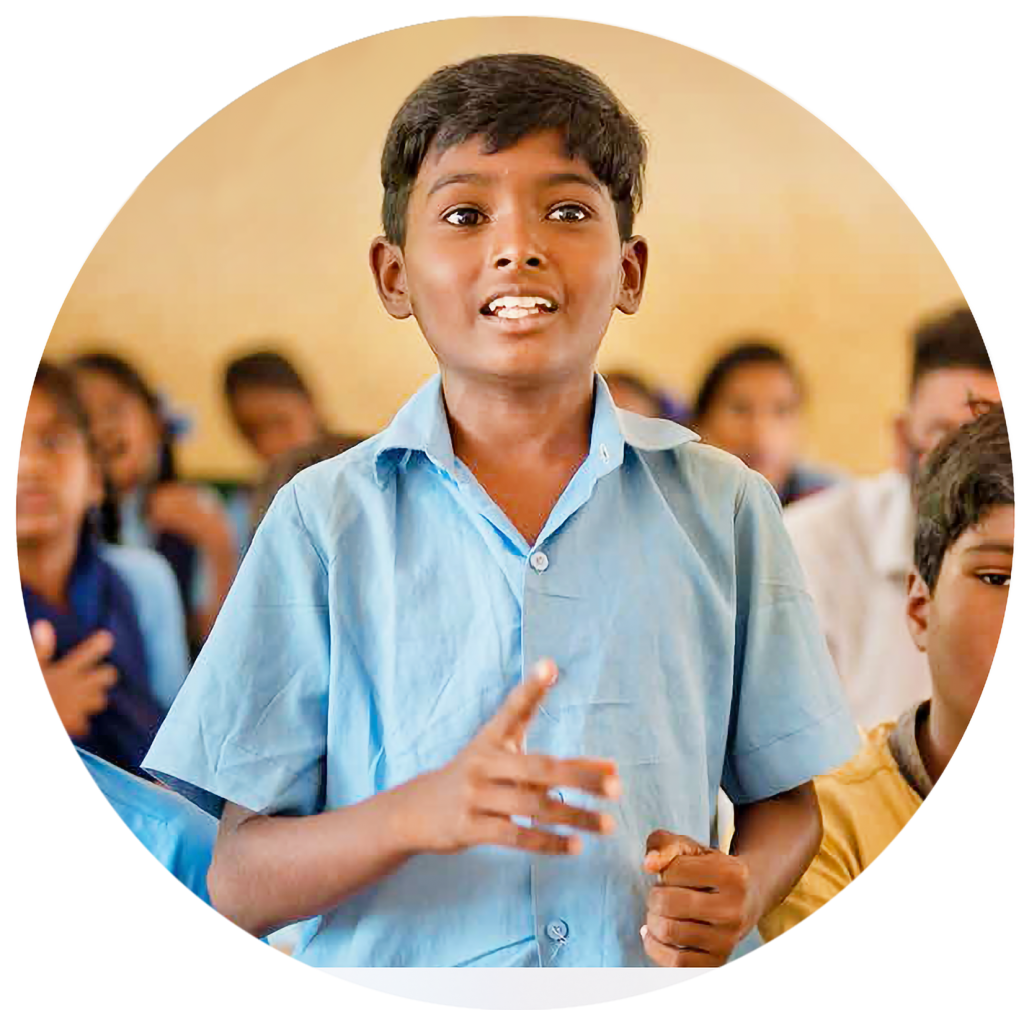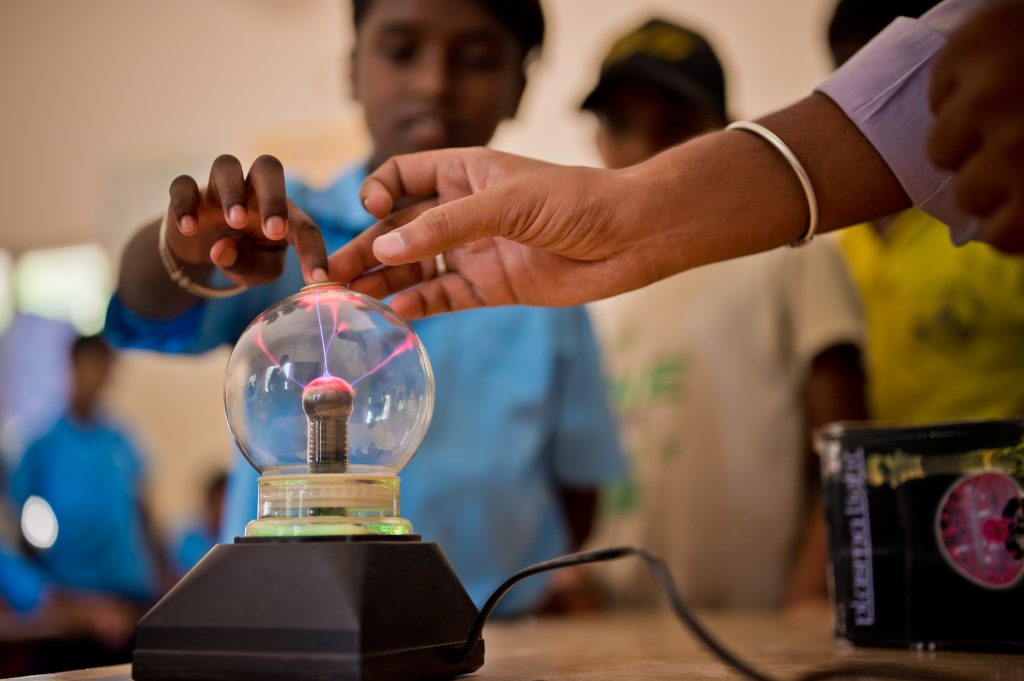
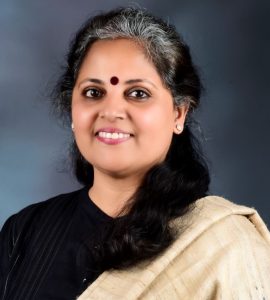
As we mark the Azadi Ka Amrit Mahotsav to commemorate 75 years of independence (2022-23), it is time to review the state of public education, celebrate numerous milestones attained, iron out the challenges and make rapid strides to lay the foundation of a developed India.
The Right to Education Act of 2009 gave fresh impetus to the public education system, intended to make it more inclusive, equitable, and accessible to all. The National Education Policy (NEP) 2020, which is in line with United Nations Sustainable Development Goal 4, seeks to develop the cognitive as well as the social, ethical, and emotional capacities of students. However, the lack of equity and quality in education could lead to missed opportunities. The lack of motivation and professional development of educators and deficient learning materials and learning conditions need to be addressed. There must be a paradigm shift in focus from merely achieving literacy to transforming India into a tech-driven, knowledge-based and inclusive economy.
To secure a firm footing and win the global race for scientific and technological innovation and research, it is critical to increase investments to impart knowledge and skills in the fields of STEM (Science, Technology, Engineering and Mathematics).
Our unflinching focus on delivering innovative scientific solutions to the most pressing global healthcare problems has a positive influence on promoting STEM education and research through our CSR programmes. Through our CSR arm, Biocon Foundation, we have made many concerted efforts to strengthen science education by collaborating with the country’s premier research institutes.
While there is a growing demand for highly qualified STEM professionals, the underrepresentation of women in STEM-related roles, metaphorically referred to as a leaky pipeline, is a cause of concern. According to a World Bank report[1], about 43 per cent of STEM graduates in India are women, the highest in the world, but their share decreases to only 14 per cent in STEM jobs.
Manoj
|
With a focus on innovation, we at the Biocon Group, are committed to building a large talent pool for the industry as well as providing opportunities for talented candidates. We have over 6,500 scientists as part of our organisation, and over 40 per cent of our researchers are women.
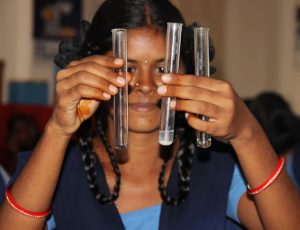 Our unflinching focus on delivering innovative scientific solutions to the most pressing global healthcare problems has a positive influence on promoting STEM education and research through our CSR programmes. Through our CSR arm, Biocon Foundation, we have made many concerted efforts to strengthen science education by collaborating with the country’s premier research institutes. Creating a pool of critical thinkers, innovators and problem solvers remains the cornerstone of our initiatives.
Our unflinching focus on delivering innovative scientific solutions to the most pressing global healthcare problems has a positive influence on promoting STEM education and research through our CSR programmes. Through our CSR arm, Biocon Foundation, we have made many concerted efforts to strengthen science education by collaborating with the country’s premier research institutes. Creating a pool of critical thinkers, innovators and problem solvers remains the cornerstone of our initiatives.
To spark curiosity, nurture creativity and help children develop a scientific temperament, we launched experiential learning models in Government schools in Chikkaballapur and the suburbs of Bengaluru and Hyderabad. Mobile Science Labs are reaching out to about 8,500 students across more than 50 government schools. Instructors are trained on imparting hands-on learning as an effective pedagogy.
Women in STEM
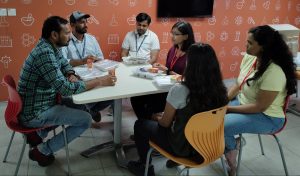 We have also partnered with the Research and Innovation Circle of Hyderabad, the nodal agency for the Hyderabad Science & Technology Cluster, an initiative of the Office of the Principal Scientific Advisor to the Government of India. The collaboration supports women from low-income groups in Tier 2 and 3 locations to pursue higher
We have also partnered with the Research and Innovation Circle of Hyderabad, the nodal agency for the Hyderabad Science & Technology Cluster, an initiative of the Office of the Principal Scientific Advisor to the Government of India. The collaboration supports women from low-income groups in Tier 2 and 3 locations to pursue higher 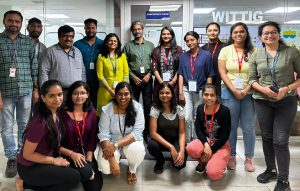 education in STEM through scholarships and mentorship. The programme aims to increase enrolment, decrease drop-out rates, and provide skills and industry orientation to women to make them employable and promote women-led science-based start-ups. In the first year, 25 deserving women candidates were sponsored and mentored.
education in STEM through scholarships and mentorship. The programme aims to increase enrolment, decrease drop-out rates, and provide skills and industry orientation to women to make them employable and promote women-led science-based start-ups. In the first year, 25 deserving women candidates were sponsored and mentored.
Mobile Science Labs
To spark curiosity, nurture creativity and help children develop a scientific temperament, we launched experiential learning models in Government schools in Chikkaballapur and the suburbs of Bengaluru and Hyderabad. Mobile Science Labs are reaching out to about 8,500 students across more than 50 government schools. Instructors are trained on imparting hands-on learning as an effective pedagogy. Furthermore, science fairs are organised to encourage the application of scientific knowledge to solve real-world problems. Science quiz competitions have been conducted to establish a culture of questioning.
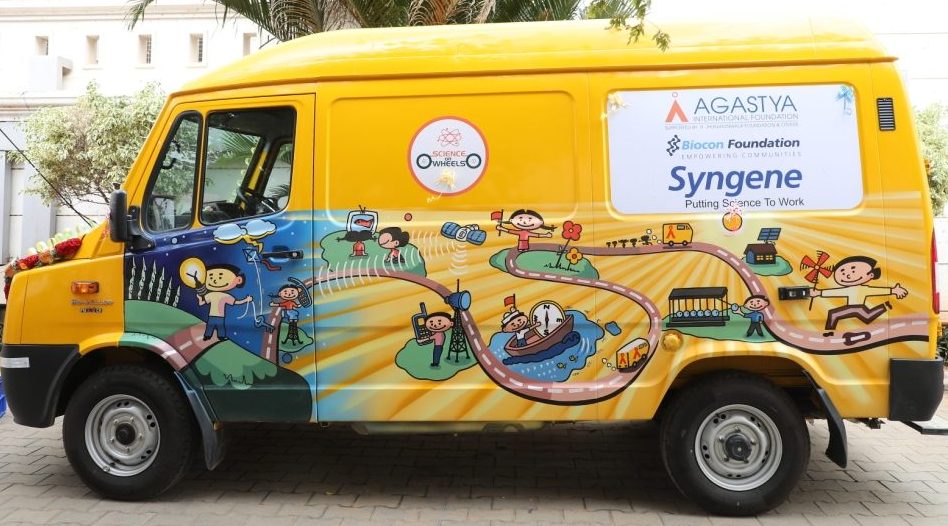
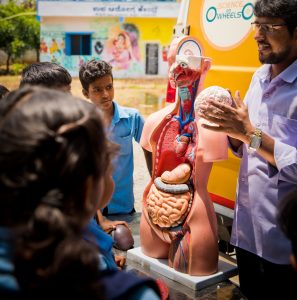
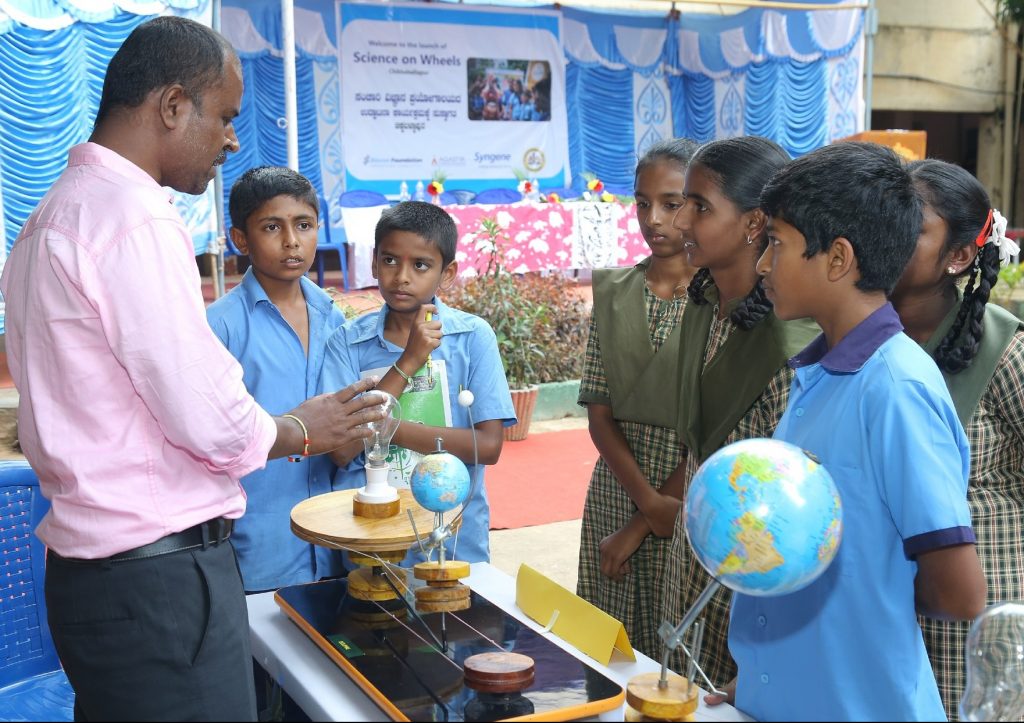
Besides helping schools explore effective pedagogies, we invest in physical infrastructure to support the learning ecosystem. We constructed spacious, well-ventilated furnished classrooms, separate washrooms for boys and girls with running water and handwash facilities, and installed drinking water purification systems in schools in Bagalkote, Tumkuru, Dakshina Kannada and in the suburbs of Bengaluru in Karnataka.
Nagendra
|
Institutional Grants
We have partnered with the Indian Institute of Science (IISC) to jointly fund the construction of a Postgraduate Medical School & Hospital in Bengaluru. The institute will set up a not-for-profit multi-specialty hospital and offer an integrated dual degree MD-PhD programme in clinical research to develop new treatments and healthcare solutions. The Biocon-Syngene: General Medicine wing, expected to be operational by early 2025, will be spread over six floors and have 147 beds. Experts in this wing will have access to the most advanced diagnostic tools.
We have established a scientific chair at the Institute of Bioinformatics and Applied Biotechnology (IBAB) to drive high-quality training in biological sciences and cutting-edge clinical research to discover new drugs.
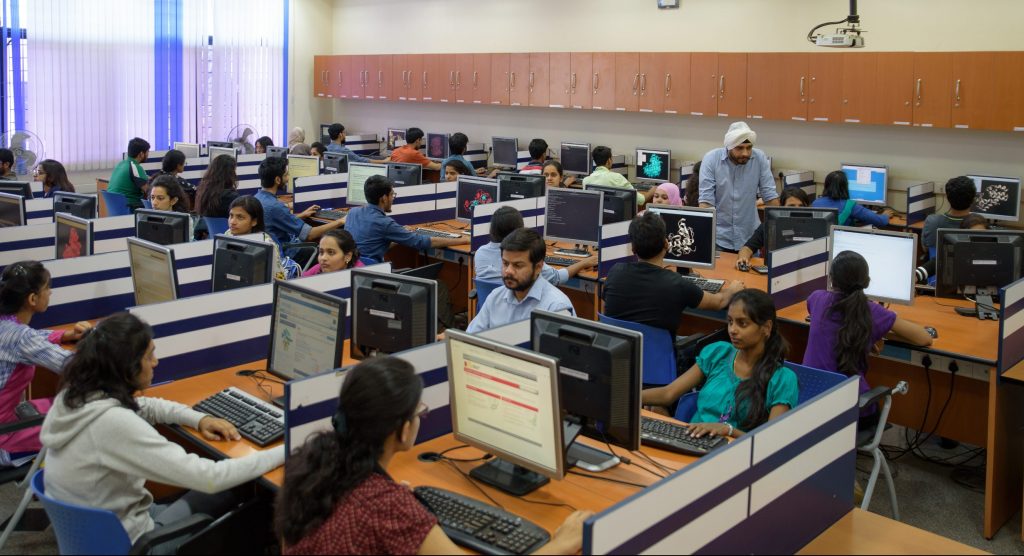
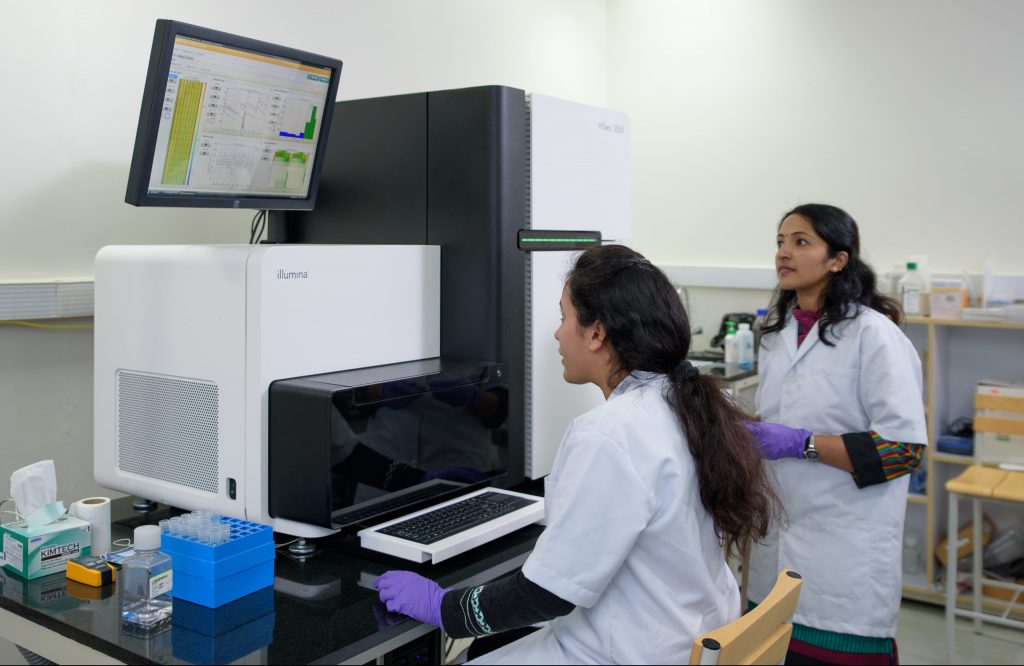
|
CHAMPS
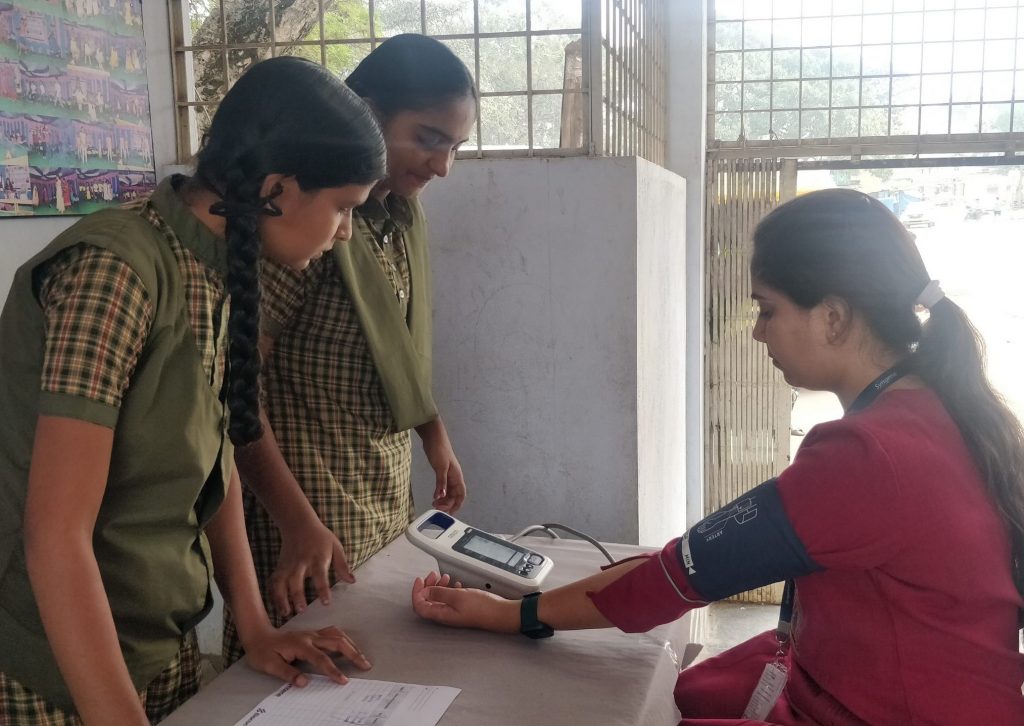 The Child Health Activists Mentoring and Promoting Health in Society (CHAMPS) is a unique health education initiative we instituted to develop high school students as community change agents in driving awareness of the early onset of Non-Communicable Diseases (NCDs) by training them to monitor and report on hypertension. About 200 government school students have been trained as CHAMPS and equipped with blood pressure monitors to screen for high blood pressure (BP), improve health-seeking behaviour and promote healthy lifestyles in their communities in Anekal, Bengaluru.
The Child Health Activists Mentoring and Promoting Health in Society (CHAMPS) is a unique health education initiative we instituted to develop high school students as community change agents in driving awareness of the early onset of Non-Communicable Diseases (NCDs) by training them to monitor and report on hypertension. About 200 government school students have been trained as CHAMPS and equipped with blood pressure monitors to screen for high blood pressure (BP), improve health-seeking behaviour and promote healthy lifestyles in their communities in Anekal, Bengaluru.
Supporting the Learning Ecosystem
Besides helping schools explore effective pedagogies, we invest in physical infrastructure to support the learning ecosystem. We constructed spacious, well-ventilated furnished classrooms, separate washrooms for boys and girls with running water and handwash facilities, and installed drinking water purification systems in schools in Bagalkote, Tumkuru, Dakshina Kannada and in the suburbs of Bengaluru in Karnataka.

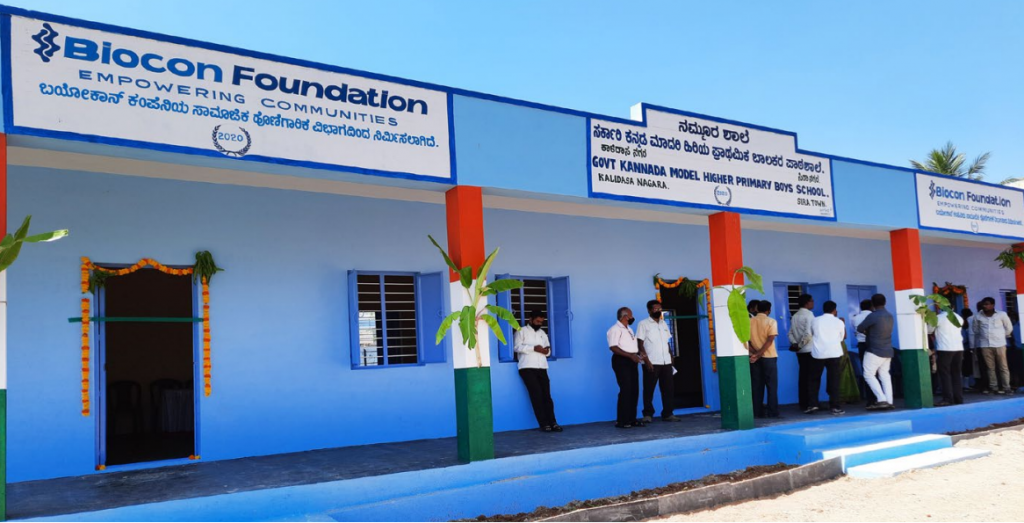
To unlock the opportunities for digital learning in government schools, we provided computers to schools in Bengaluru, Udupi, Kolar, Dakshina Kannada and Uttar Kannada districts. In the current financial year, the construction of 12 classrooms is in progress across nine schools in the Chikkkaballapur, Dakshina Kannada, and Uttara Kannada districts of Karnataka.
Transforming the Future Means Actioning Now
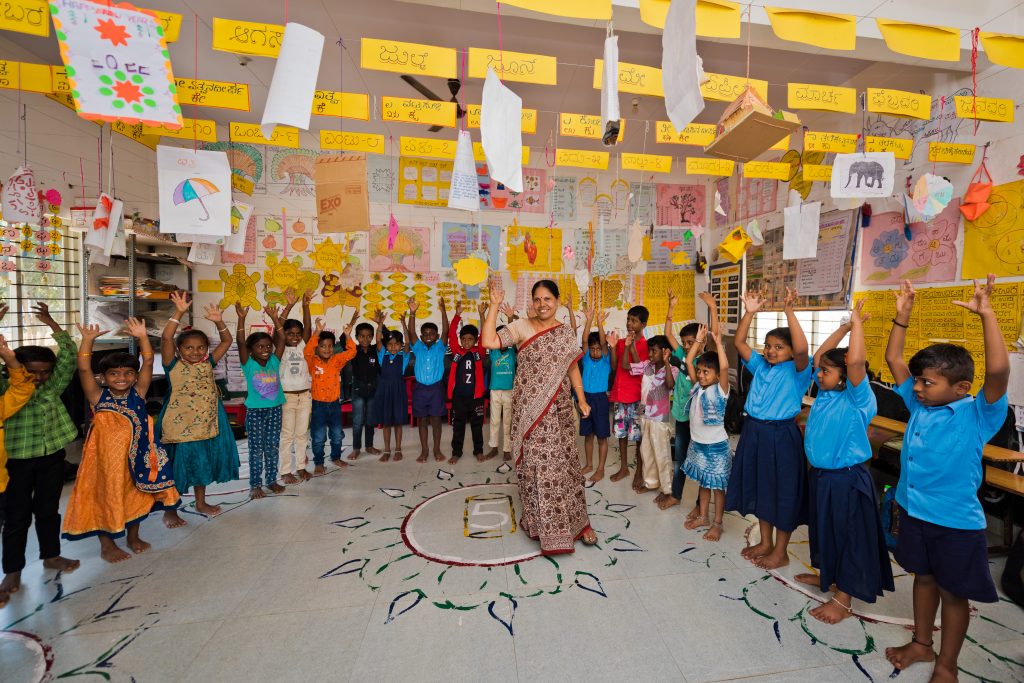 Education is a powerful enabler of social change and plays a vital role in the future of the nation. The COVID-19 pandemic surfaced as an opportunity for technology to prove its efficacy in scale and reach. While we made significant efforts to bridge the gap between technology and access to education during this time, we are now continuing our efforts to improve school and Anganwadi infrastructure, and design programmes that can engage learners creatively and make learning fun.
Education is a powerful enabler of social change and plays a vital role in the future of the nation. The COVID-19 pandemic surfaced as an opportunity for technology to prove its efficacy in scale and reach. While we made significant efforts to bridge the gap between technology and access to education during this time, we are now continuing our efforts to improve school and Anganwadi infrastructure, and design programmes that can engage learners creatively and make learning fun.
More than 3,200 students of 21 government schools in Anekal, Karnataka, received more than 59,000 virtual and face-to-face exposures, each exposure being at least 1-1.5 hours in duration.
Impact
|
Aruna Kumari
|
In our quest to strengthen STEM education, we will continue to make transformative and sustained investments, paving the way for lifelong learning opportunities, innovation, and scientific advancements


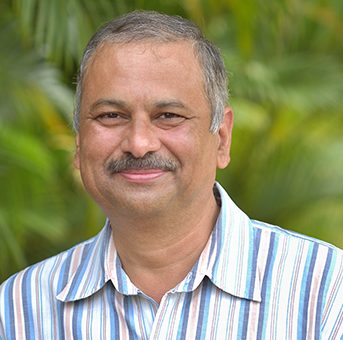 Dr H S Subramanya
Dr H S Subramanya